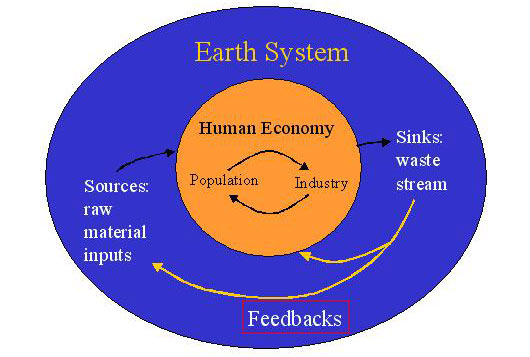
We have lived for 200 years in a growth economy. That's more than a lifetime, so it is no surprise people tend to think of economy as infinitely growing. Herman Daly, who popularized the term "Steady State Economy" over 3 decades ago, thinks differently. He argues economists have focused too much on the economy’s circulatory system and have neglected to study its digestive tract. Buckle up for some economic heresy.
"A failed growth economy and a steady-state economy are not the same thing; they are the very different alternatives we face. The Earth as a whole is approximately a steady state. Neither the surface nor the mass of the earth is growing or shrinking; the inflow of radiant energy to the Earth is equal to the outflow; and material imports from space are roughly equal to exports (both negligible). None of this means that the earth is static—a great deal of qualitative change can happen inside a steady state, and certainly has happened on Earth. The most important change in recent times has been the enormous growth of one subsystem of the Earth, namely the economy, relative to the total system, the ecosphere. This huge shift from an 'empty' to a 'full' world is truly 'something new under the sun' as historian J. R. McNeil calls it in his book of that title. The closer the economy approaches the scale of the whole Earth the more it will have to conform to the physical behavior mode of the Earth. That behavior mode is a steady state—a system that permits qualitative development but not aggregate quantitative growth. Growth is more of the same stuff; development is the same amount of better stuff (or at least different stuff). The remaining natural world no longer is able to provide the sources and sinks for the metabolic throughput necessary to sustain the existing oversized economy—much less a growing one."
Read the entire article at Oildrum. Via O'Reilly Radar, via Beyond the Beyond.
Share your thoughts and join the technology debate!
Be the first to comment